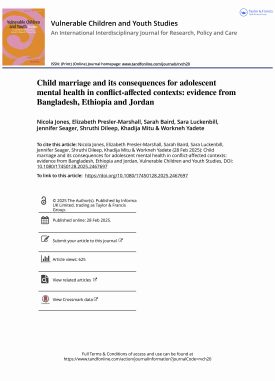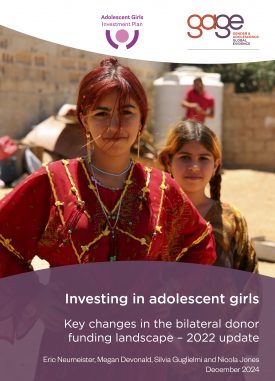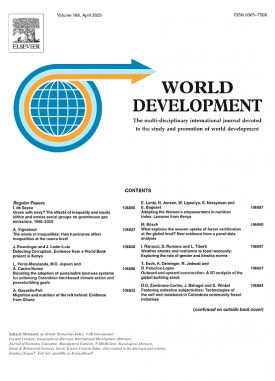This brief summarises the findings of GAGE’s formative qualitative work in Ethiopia—which took place in 2016 in three diverse regional states.
One a food-insecure, rural area of the highlands (Farta, Amhara), one a newly urbanising city (Chiro Town, Oromia), and one a pastoralist community (Semurobi , Afar). Based on individual and group interviews with nearly 500 people, 300 of whom were adolescents between the ages of 10 and 19, we found that despite significant recent progress, much of which is due to the governments’ commitment to adolescent well-being, girls’ capabilities continue to be truncated.
For example, while enrolment rates have climbed sharply in recent years, and overall girls’ enrolment now exceeds boys’, gender norms that leave girls with the bulk of domestic chores—and prone to child marriage—restrict many girls’ access to schooling in adolescence. In addition, both girls and boys are pushed out of school by teacher violence, have only cursory access to information about puberty, and lack opportunities to exercise voice and agency.
Our research suggests an urgent need to develop locally tailored programming that operationalises government commitment to adolescents by 1) strengthening reporting systems against age- and gender-based violence in the community and schools, 2) fostering mentoring systems and links to role models to support especially adolescent girls’ educational aspirations, and 3) providing increased access for adolescents to both information and opportunities to network with peers. We also suggest strengthening the economic support available to poor families—and continued and increased investment in parenting classes and community-level awareness raising efforts aimed at improving adolescent well-being.
Suggested citation
Jones, N., Tefera, B., Emirie, G., Yadete, W., Gezahegne, K., Tilahun, K. and Birhanu, K. (2017) Exploring Ethiopian adolescents’ gendered experiences and perspectives. Report. London: Gender and Adolescence: Global Evidence. (https://www.gage.odi.org/publication/ethiopian-adolescents-gendered-experiences-and-perspectives/)


